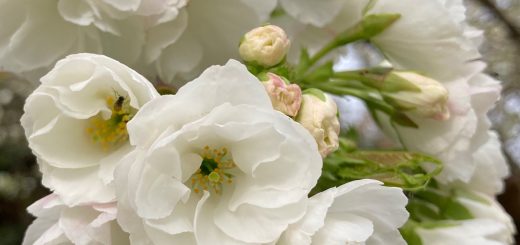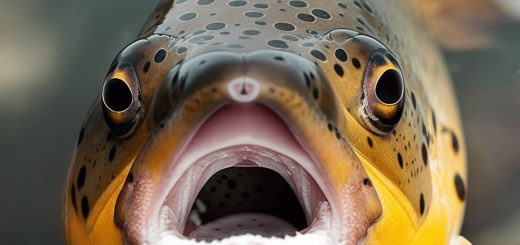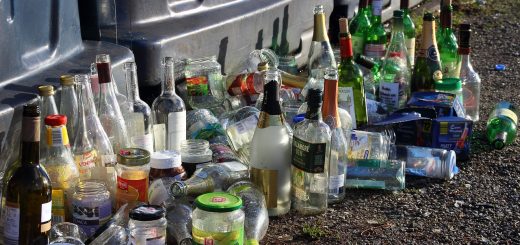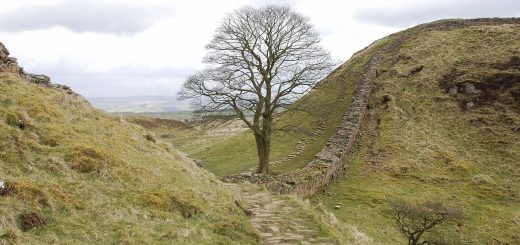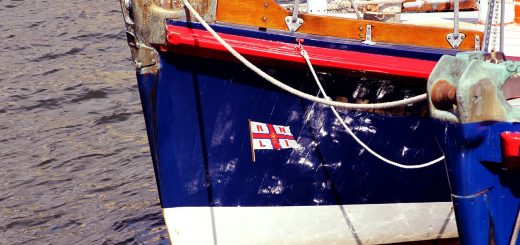Pembrokeshire Can be Part of a New World
The world has changed, and will continue to do so, probably at an accelerating rate. The devastating crisis of Covid-19 has, however, at least provided an opportunity to alter the course of economic development to cope with the climate disruption that has been creeping up on us for years.
Establishment figures, such as former Bank of England governor Mark Carney, have called for a “Green” recovery, which recognises environmental limits. Large companies such as Rolls-Royce are supportive, because they have to plan ahead, and modifications to industrial processes will need to be rapid. A majority of people seem to be prepared for a technological revolution. A quick survey of 108 people showed that, starting now, eight in ten supported a new economic direction.

The wealth of natural assets in Pembrokeshire makes it the right place and, now that the transition is starting, the right time for adaptions, and the local economy will be boosted by new initiatives that are environmentally aware.
The Pembroke Dock Marine Project, confirmed on 11 June this year, will generate 1,800 jobs in marine engineering, with an immediate focus on low-carbon energy. The Economic Development Committee of Pembrokeshire County Council has also secured funding to extend fibre optic broadband computer connections into homes to reduce the need to travel.
Change is inevitable, and all governments, including the Chinese government, recognise that fact. An ecologically based economy therefore seems likely to be driven by economic necessity. Most individuals are enmeshed in the present system, but demand for action through buying choices will also be important. The interest of UK leaders in technological fixes for climate change is a strong indicator of political preference.
A former prime minister, interviewed on BBC radio on 22 June, backed what he called rational solutions, by which he meant those provided by science and technology, but logic will not be good enough without a guiding awareness that goes beyond mere calculation.
Some people have been hoping for a very different social structure to emerge. On the same morning, just before Mark Carney spoke, an extract from an essay about strategies for recovery, written by a religious leader to millions of people around the world, said that humans need to rediscover a connection to nature, and that the pace of consumption should be slower. I was impressed by these words, because they indicate the possible emergence of a warmer, more human idea of progress than the coldly analytical one that has dominated since the industrial revolution started, though rational progress has been very beneficial in making modern life easy.
It was a simple job to track down Pembrokeshire people who have deliberately opted for life outside the competitive mainstream. There are at least four intentional communities; groups of people who try to live in permanent balance with available natural resources. That, to me, makes perfect sense.

The response of a local Buddhist leader to my question “What is simple living?” was unexpected but wise: his indirect advice, to go with the flow and not waste time grumbling, is certainly sound.
A Haverfordwest lady said that her simple life was very happy, and a South Pembrokeshire woman provided the following quote:
“Living simply for me has taken on a new meaning in recent months. I notice I have begun to place greater value on the ‘simple’ things in life, whether it be taking a walk in the countryside, spending time in the garden, eating simple (unmodified) whole foods, not shopping for items that perhaps I don’t really need, listening to bird song, valuing even small interactions, e.g. with loved ones, with neighbours, with a passing stranger on the street. Simplicity of thought has also been necessary for my sense of wellbeing and I have been working with meditation practices. Sometimes, if a negative mood arises, the thought is why bother? Why bother to wash the dishes right now? Then I turn to my Zen practice.”
It is a different world view, but are these people just idealists? Satish Kumar, the founder of Schumacher College, which is described on its website as a Centre for Innovative Learning for Ecological and Social Change, admits to idealism. Satish goes on to ask what the realists have acheived, citing some of the problems of the world.
The industrial revolution was driven by technological visionaries, perhaps the new visionaries of today are emerging just in time.
About 100 years ago, the word green might have been used to describe a Brussels sprout, but not, as far as I know, a human being. Yet my grandad grew food for the family, and granny practised real conservatism by saving every leftover scrap of everything. They made do and mended, and once a year they took a day’s holiday in Tenby. Everyone was both green and conservative.
There are so many more opportunities today that no one wants to go back, except perhaps to regain social solidarity. That social uniformity has now fractured, and we are so distinctly tribal, and prone to flaunt our differences, that animosity can easily arise, and yet each identity is a form of the same illusion.
Consumerism was on the wane before the lockdown anyway, according to the information portal of a university in the UK. It goes on to suggest that retailers “must build long-term relationships with customers by offering enriching experiences”.

Technological advances promise mind-boggling possibilities, and if the associated threats can be managed, it might just be possible for a wider range of people to enjoy a natural and creative life, while machines take care of planetary systems.
Well, maybe, but the best laid plans…
A vision or outlook that is all inclusive must surely be more certain and healthy than a narrow and technical one. An holistic vision enabled Greta Thunberg to overcome mute depression and start her worldwide environmental campaign. Visionaries are unable to sit back and hope that a human-centred, functional worldview will sort things out. Living in hope is hopeless while many decisions are made on the basis of short-term pragmatism. The holistic visionaries I met were infused with energy and enthusiasm. One person said that their vision allowed them to use the tools of rational thinking in daily life, but always guided by a long-term idea of minimal environmental impact. He said that if the action is taken in the right spirit, the outcome will take care of itself. The future, in that sense, is now.

Alan Martin is a Pembrokeshire native who has worked in several UK locations as an engineering inspector. He now lives on a smallholding in mid-county with his wife and son.














